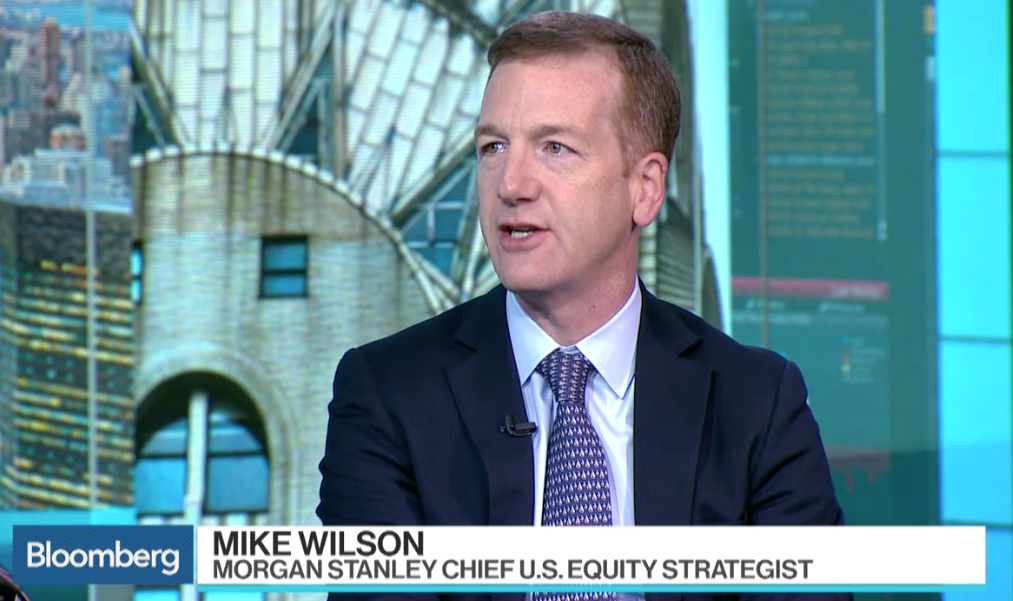The Federal Reserve’s not going to start cutting interest rates soon, Morgan Stanley’s top strategist said. When investors realize that, the focus will shift to the weakness in earnings, Mike Wilson told CNBC. “There’s no ‘heroin’, so to speak – we’re going to price to fundamentals, which are clearly deteriorating in our view,” he said. Loading Something is loading.
Thanks for signing up!
Access your favorite topics in a personalized feed while you’re on the go.
Investors are hooked on the “heroin” of potential Federal Reserve interest-rate cuts but could receive a rude awakening after the central bank’s Wednesday statement, according to Morgan Stanley’s chief US equity strategist.
Mike Wilson said he’s expecting the market to soon shift its focus to weakening corporate earnings rather than the Fed slashing rates – and he thinks stocks will lose their shine as a result.
“Once this event gets past us, and the market realizes the Fed’s not cutting rates — there’s no ‘heroin’, so to speak —we’re going to price to fundamentals, which are clearly deteriorating, in our view,” he told CNBC’s “Fast Money” Tuesday.
The Fed’s Federal Open Market Committee concludes its two-day meeting later Wednesday, when Chair Jerome Powell is set to share policymakers’ latest interest-rate decision. Over 99% of traders expect the central bank to raise rates by 25 basis points this month, according to CME Group’s Fedwatch Tool.
In 2022, the US central bank raised the cost of borrowing from near-zero to around 4.5% in a bid to tame inflation running at 40-year highs. But with once-soaring prices starting to cool, many investors now expect the Fed to start cutting rates by the end of 2023.
Wilson said that January’s stock market rally could actually encourage the Fed to hold interest rates higher for longer, in a bid to crush any bubbly exuberance that might fuel further run-ups in inflation.
“They’ve done the hard work, they’ve got rates to 4.5% — like, why quit now? Particularly with the froth coming back now – financial conditions are actually where they were a year ago, when they started raising rates,” he told CNBC.
“So there’s no incentive for them to do it. But I’ve got no idea what they’re going to do.”
Stocks broke out of 2022’s downturn by rallying in January. The benchmark S&P 500 stock index jumped 6.2% in the month, and the tech-heavy Nasdaq Composite climbed 10.7%.
But many strategists have put the gains down to investors’ blindly focusing on hypothetical Fed rate cuts while ignoring other factors, such as earnings. Corporate earnings look set to weaken over the next quarter due to the threat of a potential recession.
BlackRock’s Karim Chedid told Insider last month that investors can no longer rely on the old investing playbook that would expect for the Fed to pivot later in 2023, while top economist Mohamed El-Erian has repeatedly warned of potential headwinds that could disrupt the breathless rally.
“We’re such an equity culture, everybody wants to put the equity cart in front of the horse – that’s not the way it works, and it’s a mistake,” Wilson said. “For US equities, it’s going to be a reflection of when we think earnings are closer to reality and valuations reflect that too.”
“It’s a two-way story,” he added. “The Fed will be part of that story, but I think it’ll be cutting rates long after the market has bottomed.”
“That’s my general view, because the Fed is going to have to hold firm. I think they’re going to do their job.”
Read more: There’ll be a reckoning for investors who don’t adjust to a brand new investment playbook, says BlackRock iShares strategist
